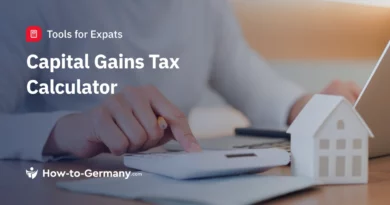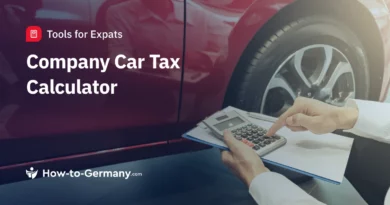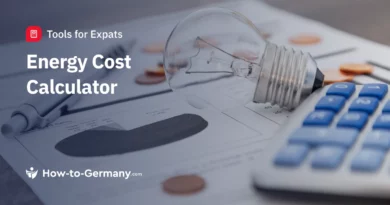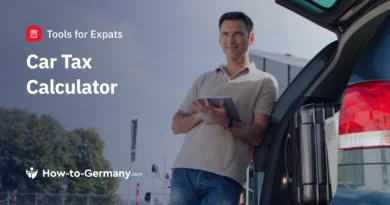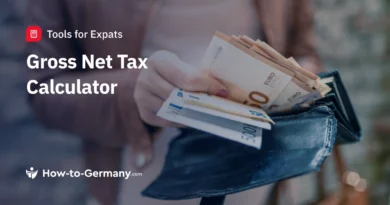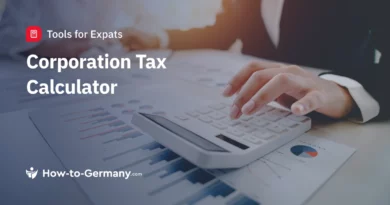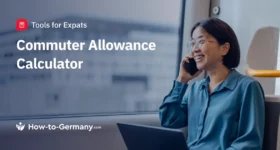Traffic Fine Calculator
Traffic Violation Calculator in Germany
Driving in Germany can be a minefield for foreigners. Strict traffic laws and hefty fines can turn a pleasant drive into a nasty surprise. To help you avoid the bad surprises, we have compiled a comprehensive guide to German traffic regulations and the associated fines. Our free traffic acceptable calculator will estimate the fine for common traffic violations like speeding, running red lights, and driving under the influence. Enter the details of your offense and get an estimate. Understanding the German traffic code is critical to safe and legal driving. This article will give you an overview of the most essential traffic laws and regulations so you can avoid costly mistakes. Whether you’re a short-term visitor or a long-term resident, this will help you drive confidently on German roads.
Traffic Regulations in Germany
Germany has a well-organized road network and strict traffic regulations. Here are the key points:
General
- Drive on the right: Germany is a right-hand traffic country.
- Speed limits: While the Autobahn is famous for its unlimited sections, there are speed limits in built-up areas (50 km/h) and outside urban areas (100 km/h).
- Seatbelts: Mandatory for all passengers.
- Child seats: Mandatory for children under 12 years or under 1.35 meters tall.
- Alcohol limit: Zero tolerance for drivers under 21 and those with probationary licenses. The general limit is 0.05%.
- Mobile phones: Using a handheld phone while driving is prohibited.
Priority
- Right-of-way: Traffic from the right has priority at intersections.
- Roundabouts: Traffic already on the roundabout has priority.
Extra
- Overtaking: Overtaking is on the left.
- Headlights: Use low beams when meeting oncoming traffic.
- Emergency vehicles: Give way to emergency vehicles with flashing lights and sirens.
- Pedestrians: Pedestrians have priority at crossings.
Learn the specific traffic signs and regulations in Germany. While this is general information, local conditions and exceptions apply.
Traffic Fines in Germany
In Germany, traffic violations can be penalized in four different ways.
Fine (Geldbuße)
Fines are the most common form of punishment for traffic violations in Germany. The amount is determined by a complex system of factors, including the severity of the offense, the driver’s income, and previous violations.
- The severity of the offense: Speeding, running a red light, and driving under the influence result in much higher fines than minor offenses like parking.
- Driver’s income: The fine is calculated as a percentage of the driver’s income. Higher-income earners will get higher fines.
- Previous offenses: Repeat offenders will get more severe penalties, including higher fines.
Please note that the amounts can vary greatly. Minor offenses can result in fines of a few dozen euros, and serious offenses can result in fines of thousands of euros.
Points on Driver’s License (Punkte im Flensburger Fahreignungsregister)
Germany has a points system called the “Flensburg Register” to monitor driver behavior. It tracks traffic offenses and assigns points according to severity.
- Point Accumulation: More severe offenses, such as speeding significantly above the limit, drunk driving, or causing an accident, will earn you more points.
- License Suspension: 8 points within 2.5 years will get your license suspended automatically.
- Warning System: The system has warning levels. 4 or 5 points will get you a warning, and 6 or 7 points will get you to attend a driver aptitude seminar.
- Point Deletion: Points are not permanent. Depending on the offense, they will be deleted after a certain period, 2.5 to 10 years.
Driving Ban (Fahrverbot)
A driving ban is a severe penalty for more serious traffic offenses in Germany. It’s a temporary ban on driving for a certain period.
- Duration: The length of the ban varies according to the offense. It can be a few weeks or several months.
- Imposition: Driving bans are usually imposed in addition to a fine and points on the driver’s license.
- Consequences: Breaching a driving ban is a serious offense that can result in more severe penalties, including a more extended ban or revocation of your driver’s license.
License Re-Examination (Führerscheinprüfung)
A license re-examination is Germany’s most severe penalty for serious or repeated traffic offenses. The driver must again prove his competency by passing the whole driving test.
- Reasons for Re-examination: This penalty is usually imposed for offenses that show a severe lack of driving ability or pose a serious threat to road safety, like causing multiple accidents or driving under the influence with severe consequences.
- Process: The driver has to undergo theoretical and practical driving tests to get his license back.
- Additional Requirements: In some cases, the driver might have to attend additional driving courses or counseling before he is allowed to retake the test.
Common Traffic Offenses and Fines in Germany
Estimating traffic fines in Germany can be tricky. Our traffic-acceptable calculator makes it easy, but understanding the rules and penalties is critical to avoiding costly mistakes. This chapter explains common traffic offenses, fines, and consequences so you can drive safely on German roads.
Speeding Ticket and Speed Cameras
Germany is famous for its Autobahn, which allows you to drive without speed limits in certain sections. But that doesn’t mean you can drive recklessly. Speed limits are strictly enforced on other roads, and exceeding them will result in a fine.
Speed Cameras
Germany has an extensive network of speed cameras to monitor traffic. These cameras are stationary and mobile, so it’s hard to predict where they are.
- Stationary cameras: These are usually located in areas where speeding incidents or accident black spots have been reported.
- Mobile cameras: These are moved around to different locations, so you can’t anticipate where they are.
Speeding penalties in Germany are severe and depend on the extent of the speed limit violation.
- Fines: Speeding tickets can be a few dozen Euros for minor offenses to several hundred Euros for more serious speed excesses.
- Points: Exceeding the speed limit by a certain amount will get you points on your driver’s license. Too many points will get your license suspended.
- A driving ban can be imposed in addition to fines and points for extreme speeding offenses.
Speeding Fines in Germany:
- Up to 10 km/h over the limit: €20 outside the city, €30 inside the city.
- 11-15 km/h over the limit: €40 outside the city, €50 inside the city.
- 16-20 km/h over the limit: €60 outside the city, €70 inside the city.
- 21-25 km/h over the limit: €100 outside the city, €115 inside the city, 1 point.
- 26-30 km/h over the limit: €150 outside the city, €180 inside the city, 1 point, 1 month driving ban.
- 31-40 km/h over the limit: €200 outside the city, €260 inside the city, 1 point, 1 month driving ban.
- 41-50 km/h over the limit: €320 outside the city, €400 inside the city, 2 points, 1 month driving ban.
- 51-60 km/h over the limit: €480 outside the city, €560 inside the city, 2 points, 2 month driving ban.
- 61-70 km/h over the limit: €600 outside the city, €700 inside the city, 2 points, 2 month driving ban.
- Over 70 km/h over the limit: €700 outside the city, €800 inside the city, 2 points, 3 month driving ban.
Red Light Violations
Running a red light is a serious offense in Germany with severe consequences. The penalties vary:
- Short red light phase: If the light turns red for less than a second before you cross the stop line, the fine is usually €90 and 1 point. If it’s an endangerment, then it’s €200 and 2 points with a 1-month driving ban. If damaged, it’s €240, 2 points, and a 1-month driving ban.
- Longer red light phase: If the light has been red for over a second, the fine is €200, 2 points, and a 1-month driving ban. If it’s with an endangerment, it’s €320 and 2 points with a 1-month driving ban. If it’s with damages, it’s €360, 2 points, and a 1-month driving ban..
- Endangering others: If you endanger other road users, the fines and penalties are much higher, possibly including a more extended driving ban and a license re-examination.
Driving Under the Influence of Alcohol/Drugs
Driving under the influence of alcohol is strictly forbidden in Germany. The legal blood alcohol limit is 0.05%. Any amount above that is a violation.
The consequences for driving under the influence can be:
- High fines: Thousands of euros.
- Driving bans: Temporary or permanent driving prohibition.
- License revocation: In extreme cases, the driver’s license will be revoked.
- Criminal charges: If the blood alcohol level is very high or an accident occurs, charges will be brought.
- Imprisonment: In extreme cases, imprisonment.
Driving Under the Influence Fines:
- First offense: €500, 2 points, 1 month driving ban.
- Second offense: €1,000, 2 points, 3 month driving ban.
- Third offense: €1,500, 2 points, 3 month driving ban.
- Endangering others (blood alcohol level 0.3%): 3 points, license revocation, possible jail time, heavy fines.
- Blood alcohol level over 1.1%: 3 points, license revocation, possible jail time, heavy fines.
There is zero tolerance for young drivers and probationary drivers. Any amount of alcohol in the blood is illegal for them. Please remember that even small amounts of alcohol can impair your judgment and reaction time and increase the risk of an accident. Always choose an alternative way to get home if you plan to drink.
Conclusion
Driving in Germany requires knowledge of the traffic rules and penalties. This guide has shown you the expected traffic violations, fines, and points system. Now, you know and can avoid traffic offenses.
Try our traffic acceptable calculator to calculate your potential fines. Knowledge of traffic rules plus our tool = safe driving and no penalties.
Remember, driving is about avoiding fines, as well as yourself and others.
Frequently Asked Questions
If you think a traffic fine is unfair, you can appeal by filing an objection (Einspruch) within a specific time frame. You need to provide clear evidence and reasons for your appeal.
You have two weeks to appeal a traffic fine from the date of the notice. Don’t miss this deadline, or you’ll lose your right to appeal.
Late payment of a traffic fine can incur extra fees and legal action. In some cases, it can even result in a driving ban.
Foreign drivers who receive a traffic fine in Germany must follow the same procedure as residents. Payment can often be made online or by mail, but don’t miss the deadlines, or you’ll incur extra costs.
Not paying a traffic fine in Germany can result in:
- Higher fines: Fines often increase if you don’t pay on time.
- Driving ban: Not paying can result in a driving ban.
- Debt collection agencies: Unpaid fines will be passed on to debt collection agencies, and you’ll incur extra costs.
- Legal action: In extreme cases, legal action will be taken.
- Trouble renting cars or buying vehicles: A history of unpaid fines will affect future car purchases.
